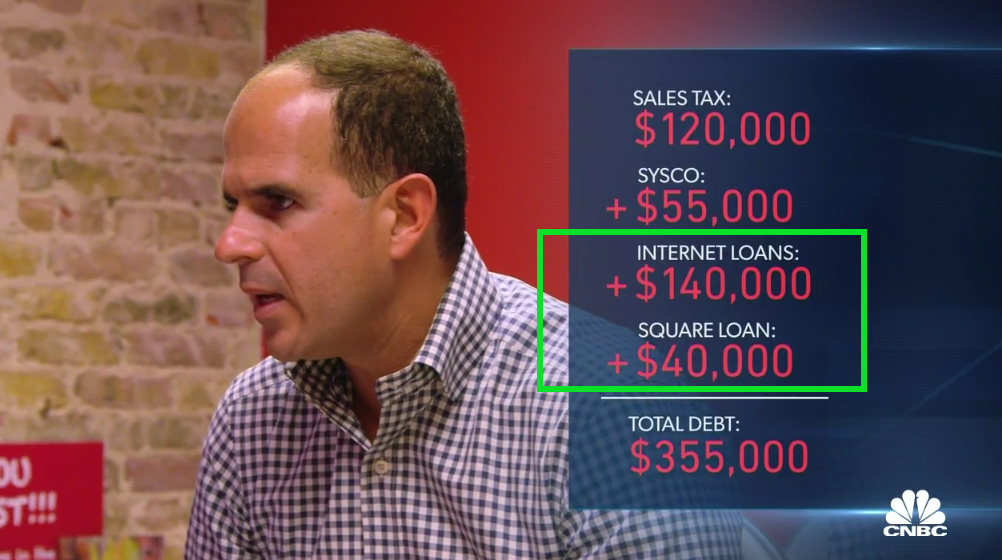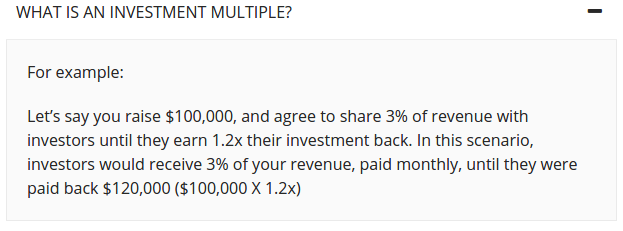The Profit Review
The Profit Meets Online Lenders: Da Lobsta | Season 3
by , 12-01-2015 at 09:13 PM (3520 Views)
Famous entrepreneur and CNBC TV star Marcus Lemonis has once again encountered online lenders while attempting to turn around a struggling business. Da Lobsta, a Chicago sandwich shop, called in The Profit to help co-owner J. Wolf solve their problems. The locale was personal to Lemonis because he lives in Chicago and knows the restaurant scene well.
But Lemonis quickly learned that the story behind the two storefronts and food truck known for their lobster experience posed too much risk, even for him. Unfortunately, Wolf's ways, while perhaps shocking to some viewers, are all too familiar to those in the online lending industry:
- Wolf initially didn't have financial statements
- When Wolf provided some financial documents, he asserted immediately that they might not be accurate
- Wolf pays himself cash right out of the business and doesn't pay taxes on it
- Wolf runs his personal expenses right through the business accounts
- Wolf has invested $0 of his own money in the business
- Wolf was $120,000 past due on his sales tax payments
- Wolf isn't on speaking terms with some of his partners (who are also his family members)
To put it nicely, there is no bank that would lend money to Da Lobsta with these circumstances. But here's the kicker, Da Lobsta got funded $180,000 by non-bank alternatives and my guess is (assuming these companies aren't charities) that the costs were pretty hefty.
Note: Don't try to add all the numbers together because other factors in the equation appeared on another screen.
At least $40,000 of the above appears to be a merchant cash advance from Square, a product that is not a loan, but is unsurprisingly miscategorized given the owner's candid admission that he doesn't keep accurate books.
Some would argue that more debt for this business would be a bad thing and they would probably be right. But in the absence of short term capital infusions, even if expensive, many employees would soon find themselves out of a job. Wolf, who owned 52% of the company's shares and is the main operator, was pretty set on turning everything around despite the setbacks he'd faced.
That strategy paid off in the sense that they lasted long enough to be cast for The Profit and be presented with the opportunity to make a deal with small business superman Marcus Lemonis. But it didn't work out...
Wolf was done in by his tendency to live lavishly on the company's dime while shrugging off things like taxes. Lemonis wasn't having any of it. During the eventual negotiation, Lemonis told Wolf that if they were to become partners, Wolf wouldn't be allowed to manage the company financially. He also conveyed his belief that the business itself didn't really work, but that he was indeed interested in the "concept."
The final offer was $210,000 for 51% of the business. The intimation was that Wolf would be diluted down from 52% owner to 1% owner in the process. He'd also be cut off from accessing the company's bank accounts and be paid an annual salary of $60,000. He'd also have to do things he hated doing, like pay taxes.
Wolf turned it down cold under the pretext that he had built something solid and self-sustaining. I suppose if you ignore those pesky problems that led him to call Lemonis in the first place, things aren't so bad! With more than $431,000 in total debt and the threat of the business being padlocked for non-payment of taxes, Wolf expressed that things were going way too good to sell out now.
In an interview with the Chicago Tribune, Lemonis said, "I take business very seriously, and I take money very seriously. In my opinions, this individual isn't taking money seriously enough. He's really kind of spending basically everybody else's."
While it's unclear if this loan was included in the "internet loans" category during the time the show was filmed, Da Lobsta crowdfunded a $70,000 loan through Bolstr.com in April of 2014. They paid it off in just seven months. According to Bolstr's website, investors are repaid through a percentage of the businesses' revenue. Does this concept sound familiar to you? The example in their FAQ uses a 1.20 factor. While the payments are remitted to the investors monthly, the entire system has a very merchant cash advance ring to it.
While this might have been the first time that Marcus Lemonis met Da Lobsta, it won't be the last time he'll meet Da Lendas.
Until next time...








